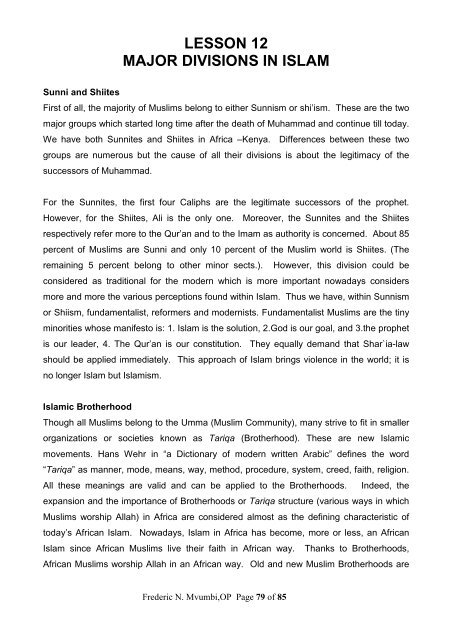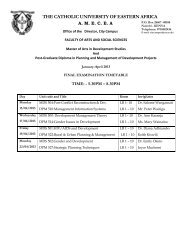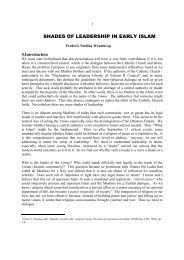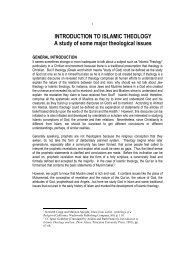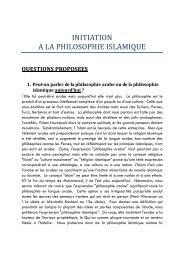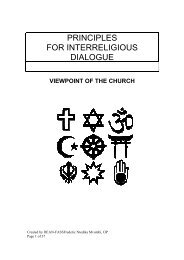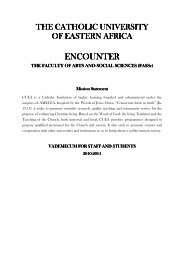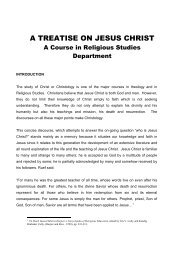ISLAM FOR BEGINNERS BRS 107.pdf - CUEA
ISLAM FOR BEGINNERS BRS 107.pdf - CUEA
ISLAM FOR BEGINNERS BRS 107.pdf - CUEA
Create successful ePaper yourself
Turn your PDF publications into a flip-book with our unique Google optimized e-Paper software.
LESSON 12MAJOR DIVISIONS IN <strong>ISLAM</strong>Sunni and ShiitesFirst of all, the majority of Muslims belong to either Sunnism or shi’ism. These are the twomajor groups which started long time after the death of Muhammad and continue till today.We have both Sunnites and Shiites in Africa –Kenya. Differences between these twogroups are numerous but the cause of all their divisions is about the legitimacy of thesuccessors of Muhammad.For the Sunnites, the first four Caliphs are the legitimate successors of the prophet.However, for the Shiites, Ali is the only one. Moreover, the Sunnites and the Shiitesrespectively refer more to the Qur’an and to the Imam as authority is concerned. About 85percent of Muslims are Sunni and only 10 percent of the Muslim world is Shiites. (Theremaining 5 percent belong to other minor sects.). However, this division could beconsidered as traditional for the modern which is more important nowadays considersmore and more the various perceptions found within Islam. Thus we have, within Sunnismor Shiism, fundamentalist, reformers and modernists. Fundamentalist Muslims are the tinyminorities whose manifesto is: 1. Islam is the solution, 2.God is our goal, and 3.the prophetis our leader, 4. The Qur’an is our constitution. They equally demand that Shar`ia-lawshould be applied immediately. This approach of Islam brings violence in the world; it isno longer Islam but Islamism.Islamic BrotherhoodThough all Muslims belong to the Umma (Muslim Community), many strive to fit in smallerorganizations or societies known as Tariqa (Brotherhood). These are new Islamicmovements. Hans Wehr in “a Dictionary of modern written Arabic” defines the word“Tariqa” as manner, mode, means, way, method, procedure, system, creed, faith, religion.All these meanings are valid and can be applied to the Brotherhoods. Indeed, theexpansion and the importance of Brotherhoods or Tariqa structure (various ways in whichMuslims worship Allah) in Africa are considered almost as the defining characteristic oftoday’s African Islam. Nowadays, Islam in Africa has become, more or less, an AfricanIslam since African Muslims live their faith in African way. Thanks to Brotherhoods,African Muslims worship Allah in an African way. Old and new Muslim Brotherhoods areFrederic N. Mvumbi,OP Page 79 of 85


